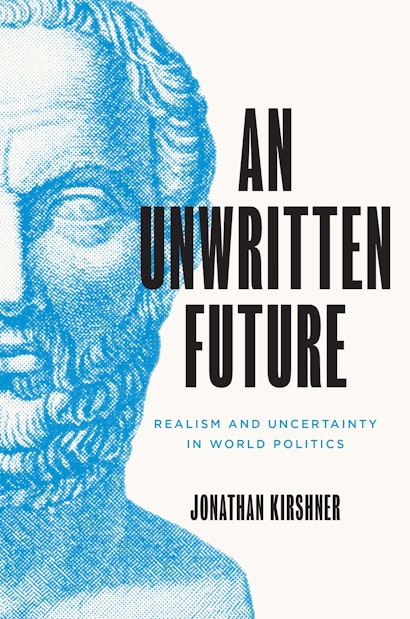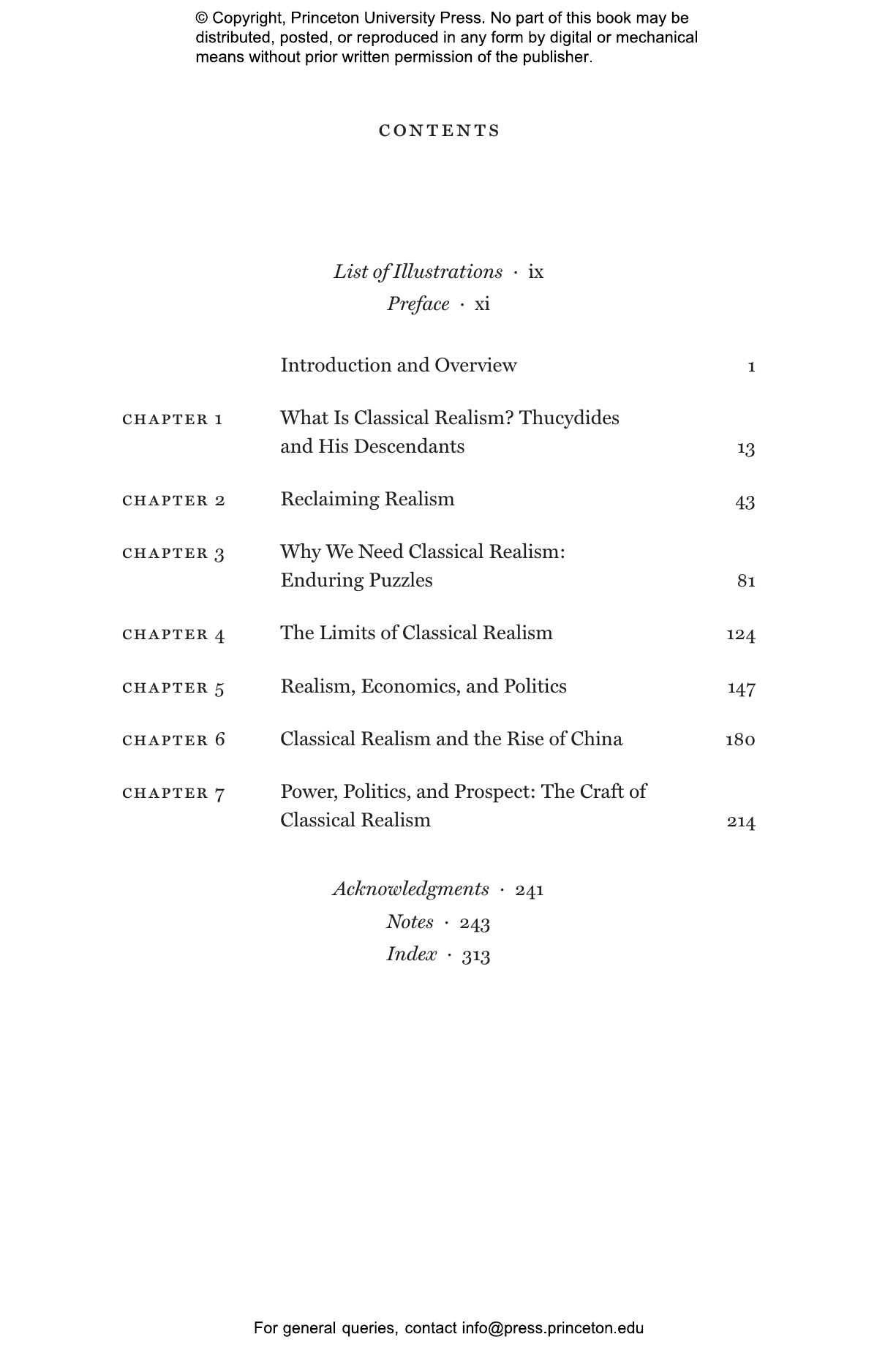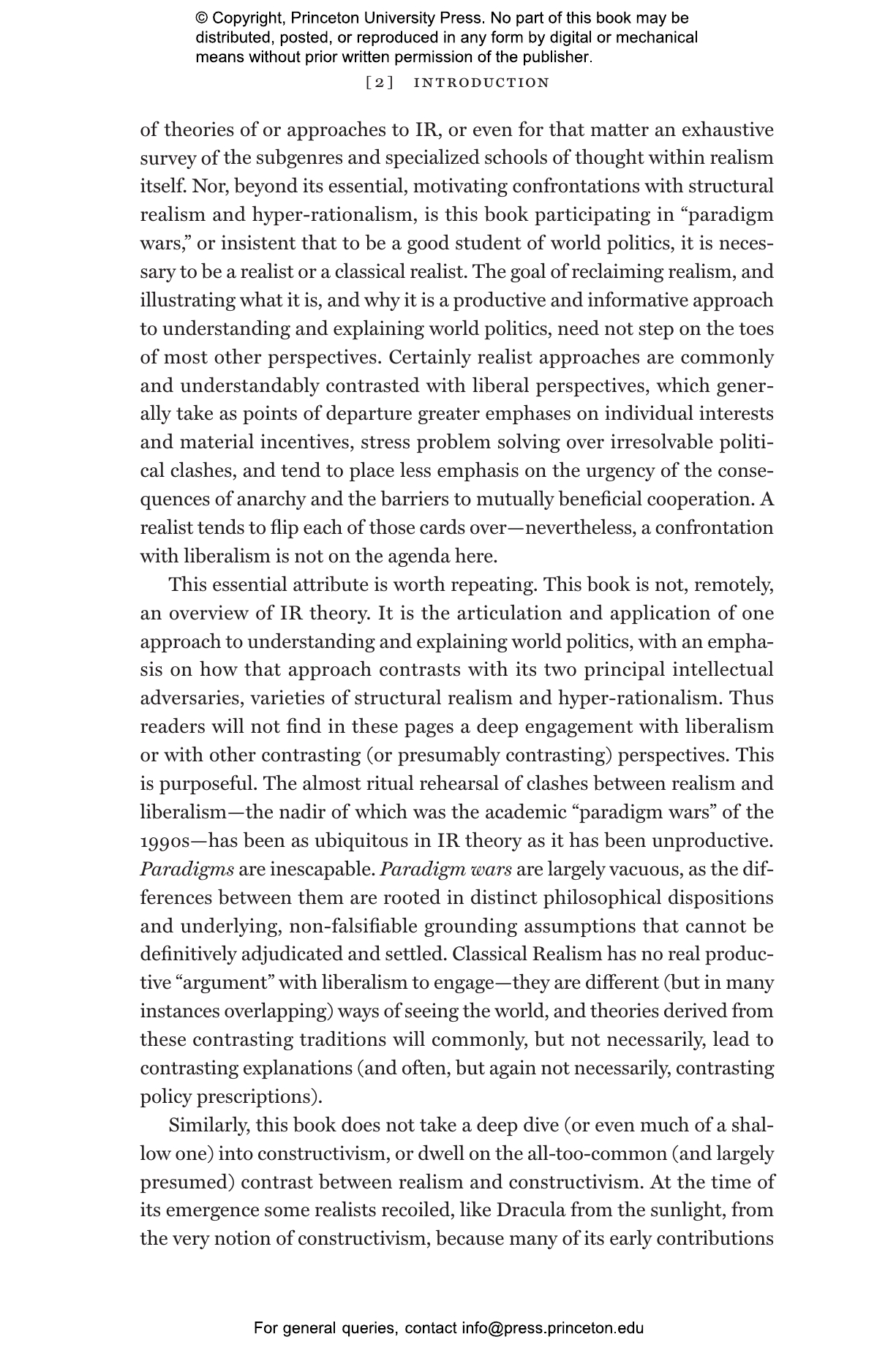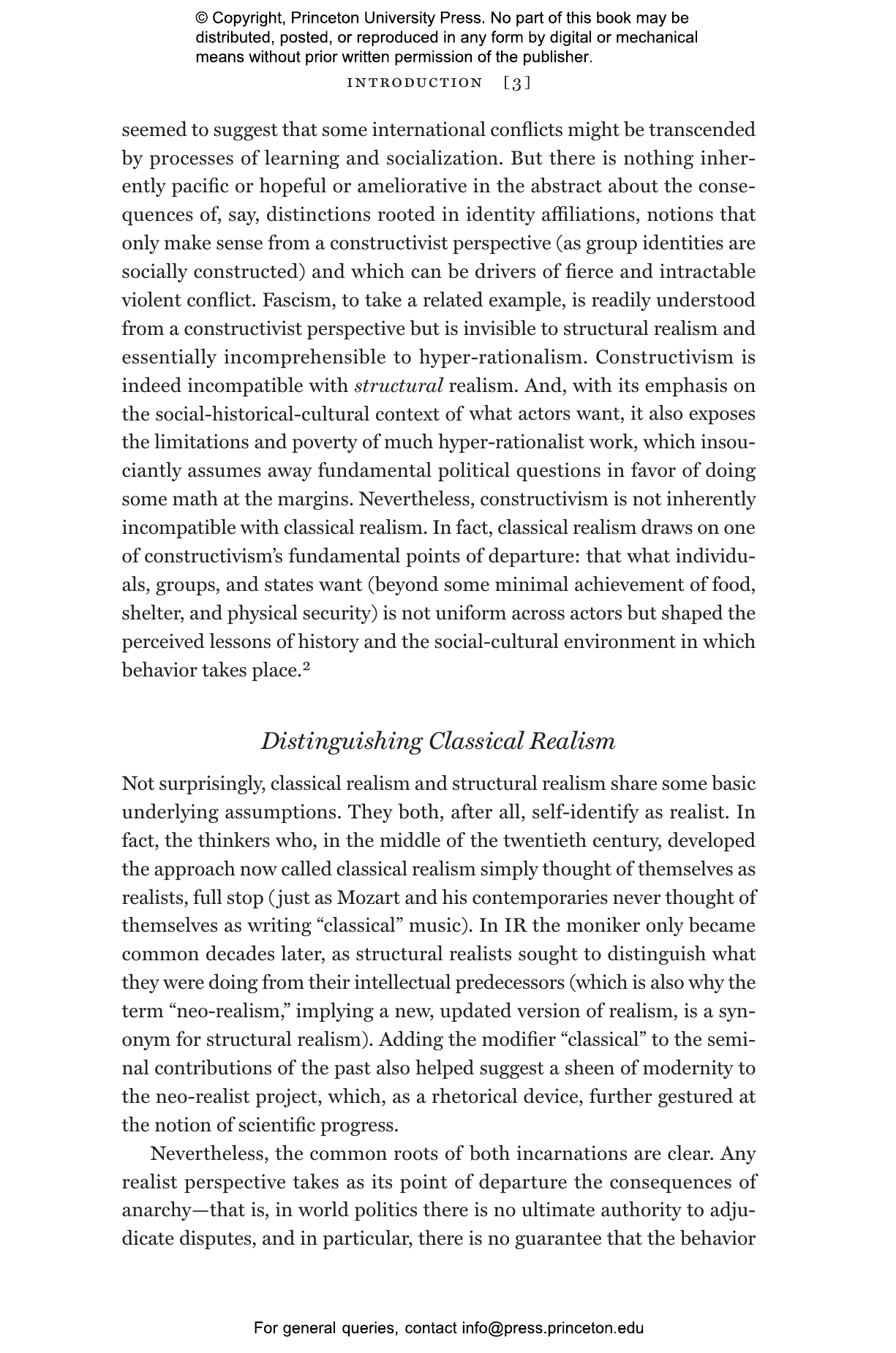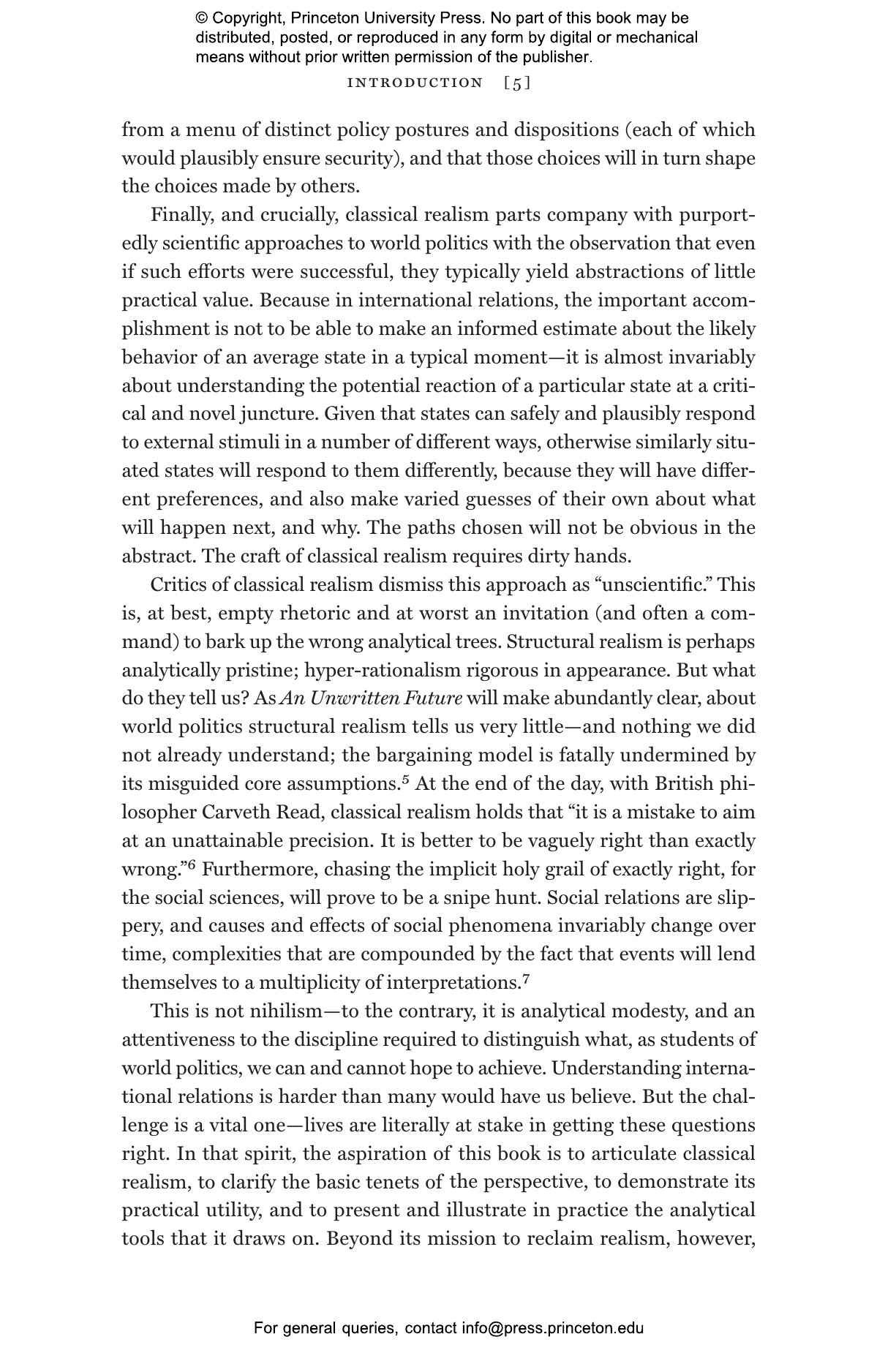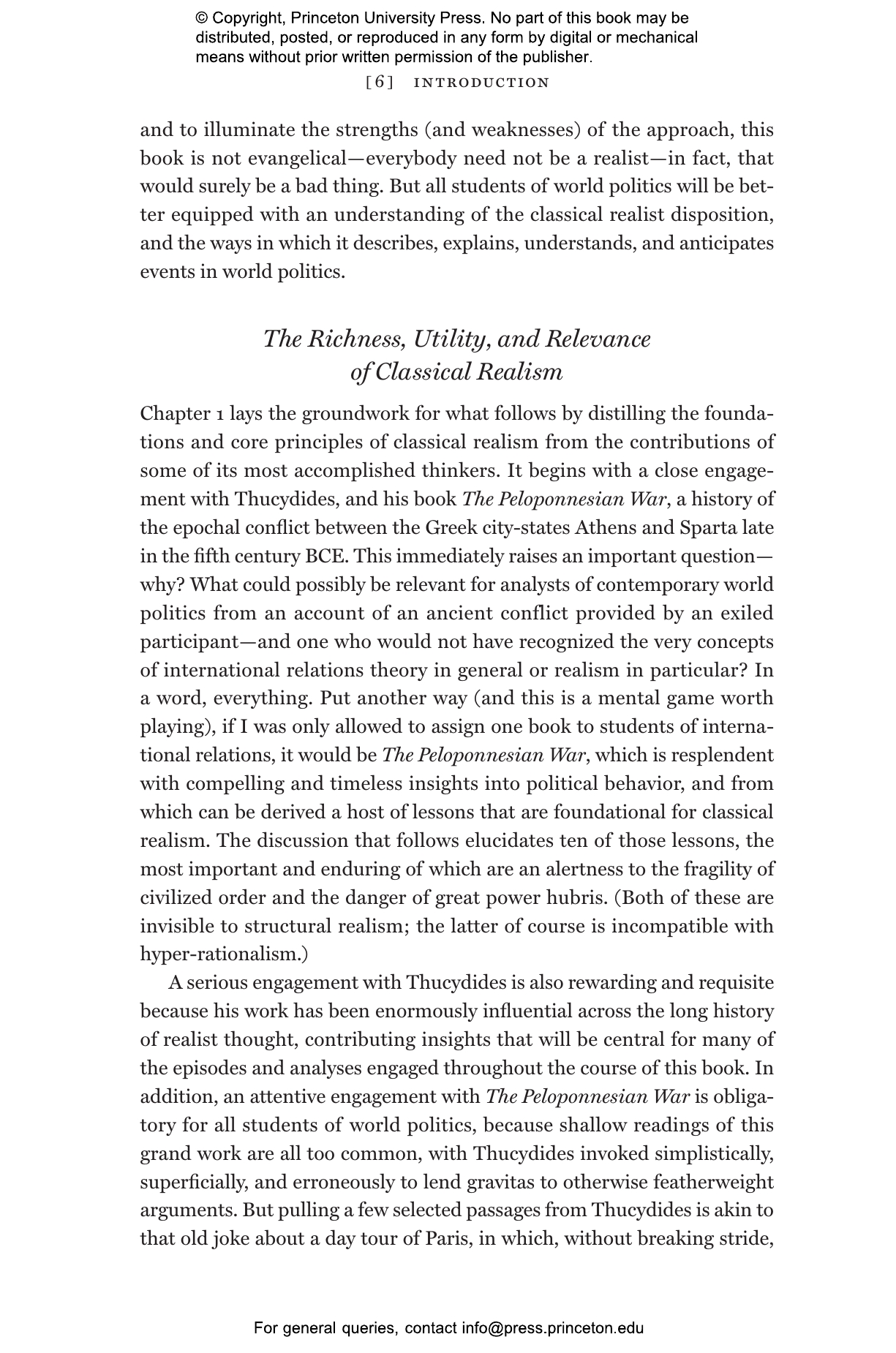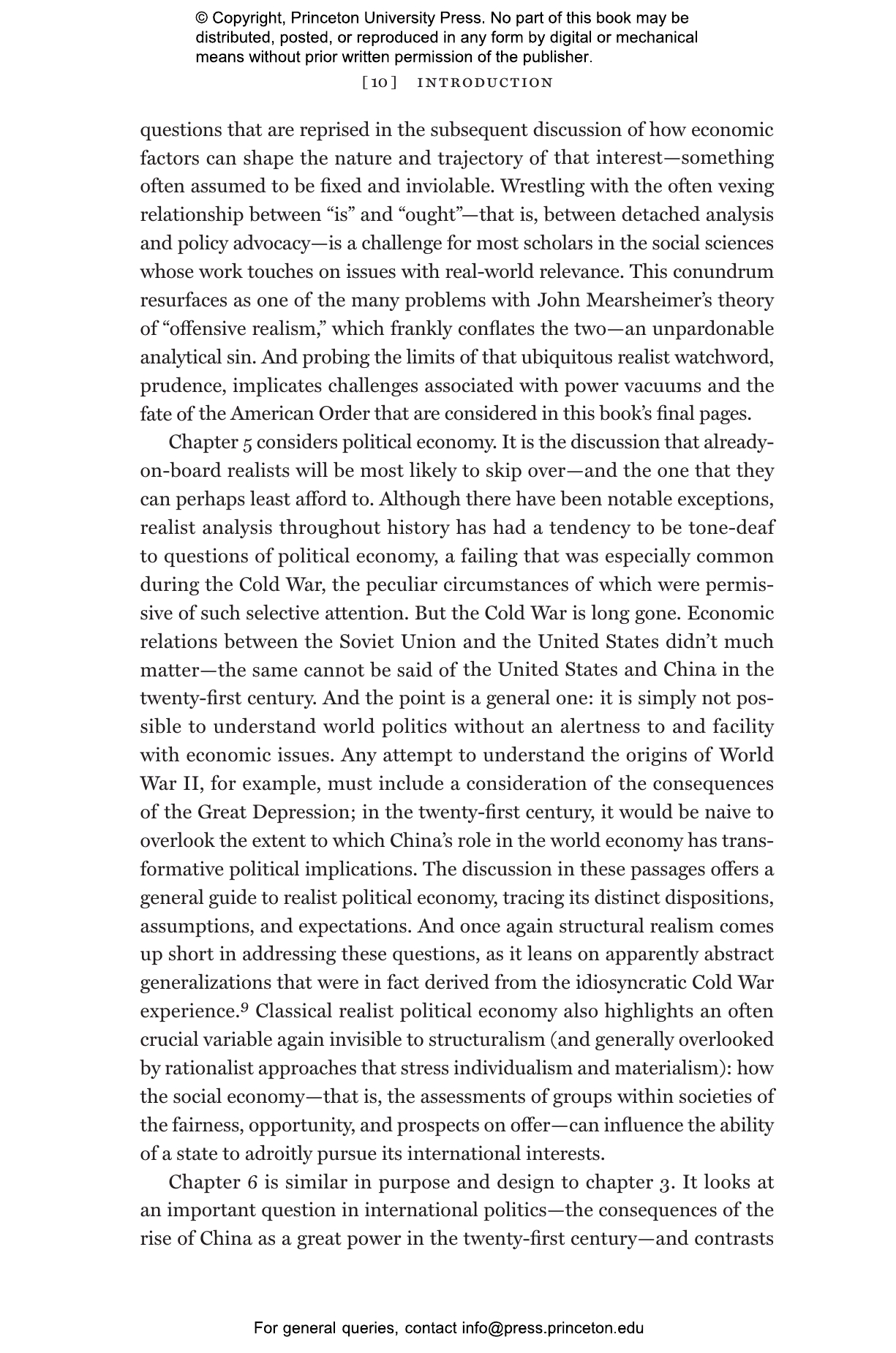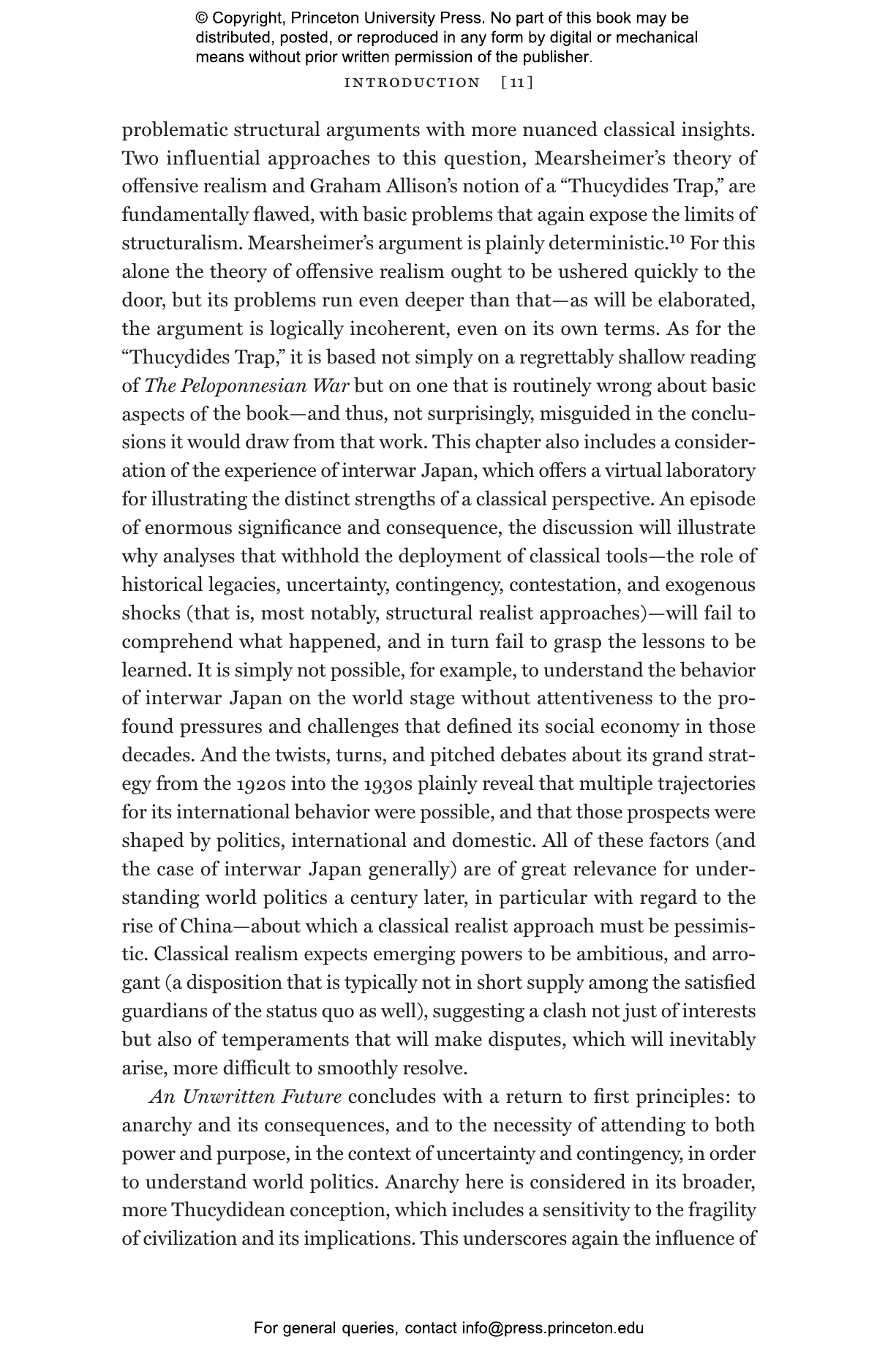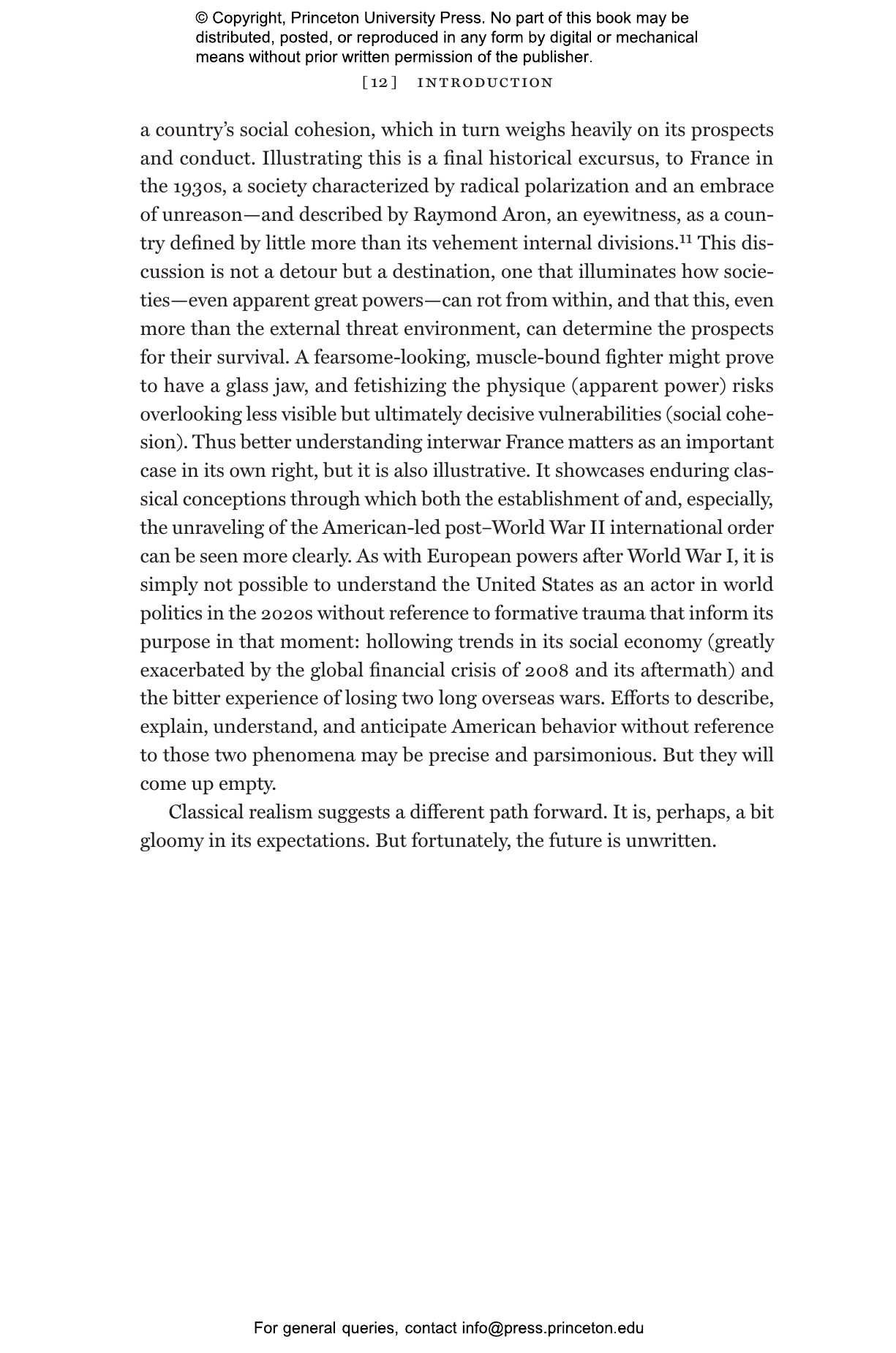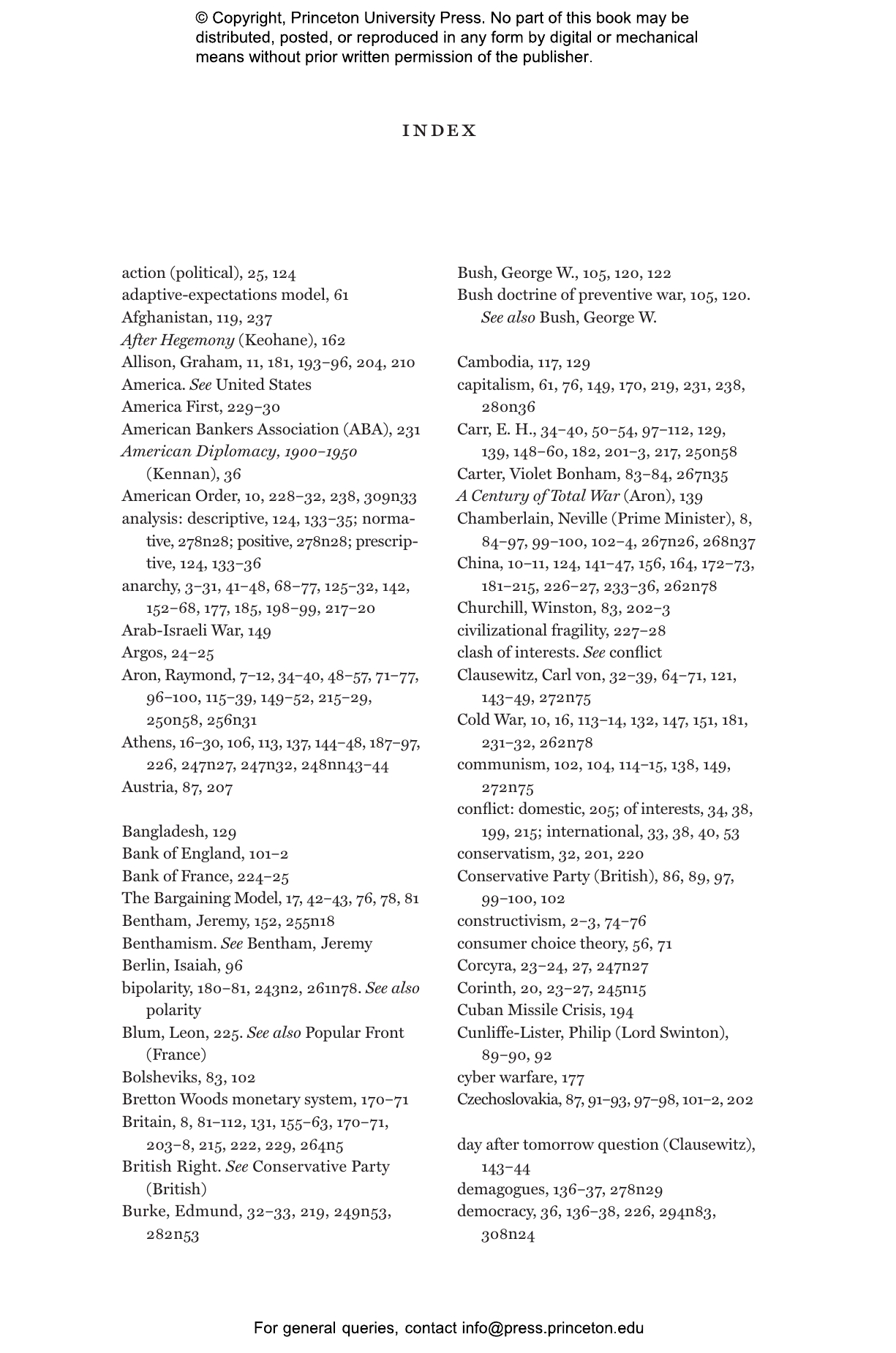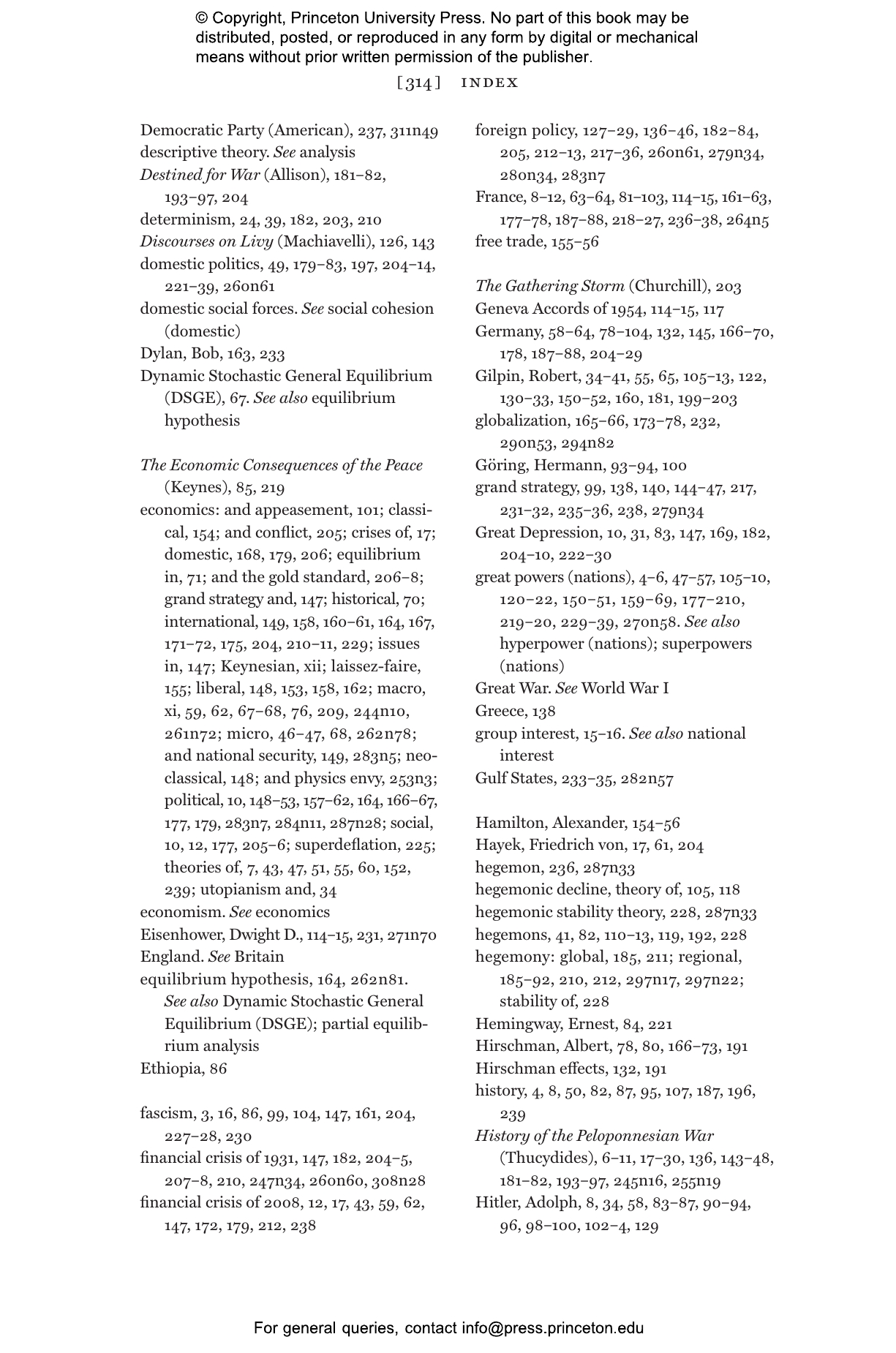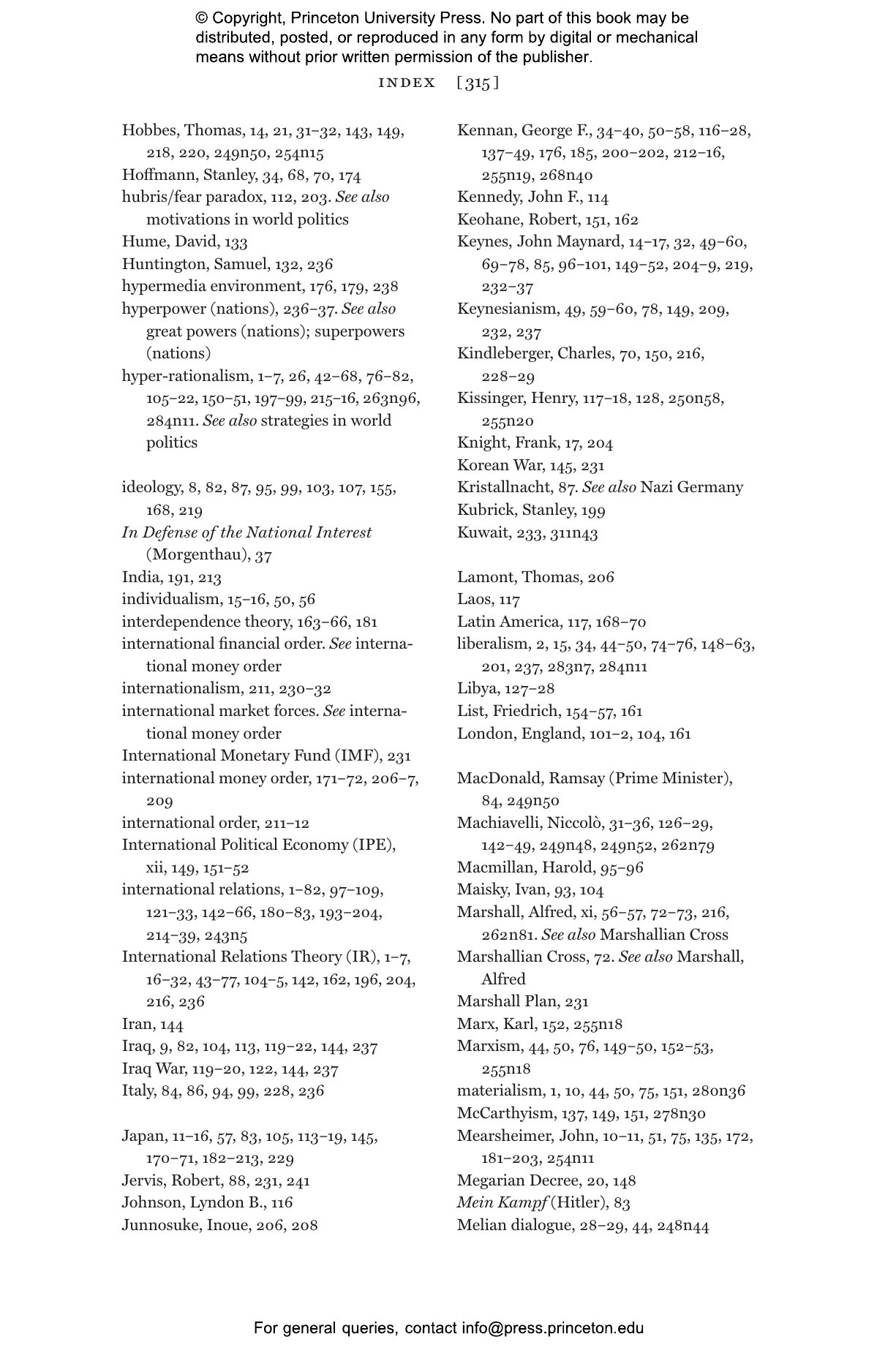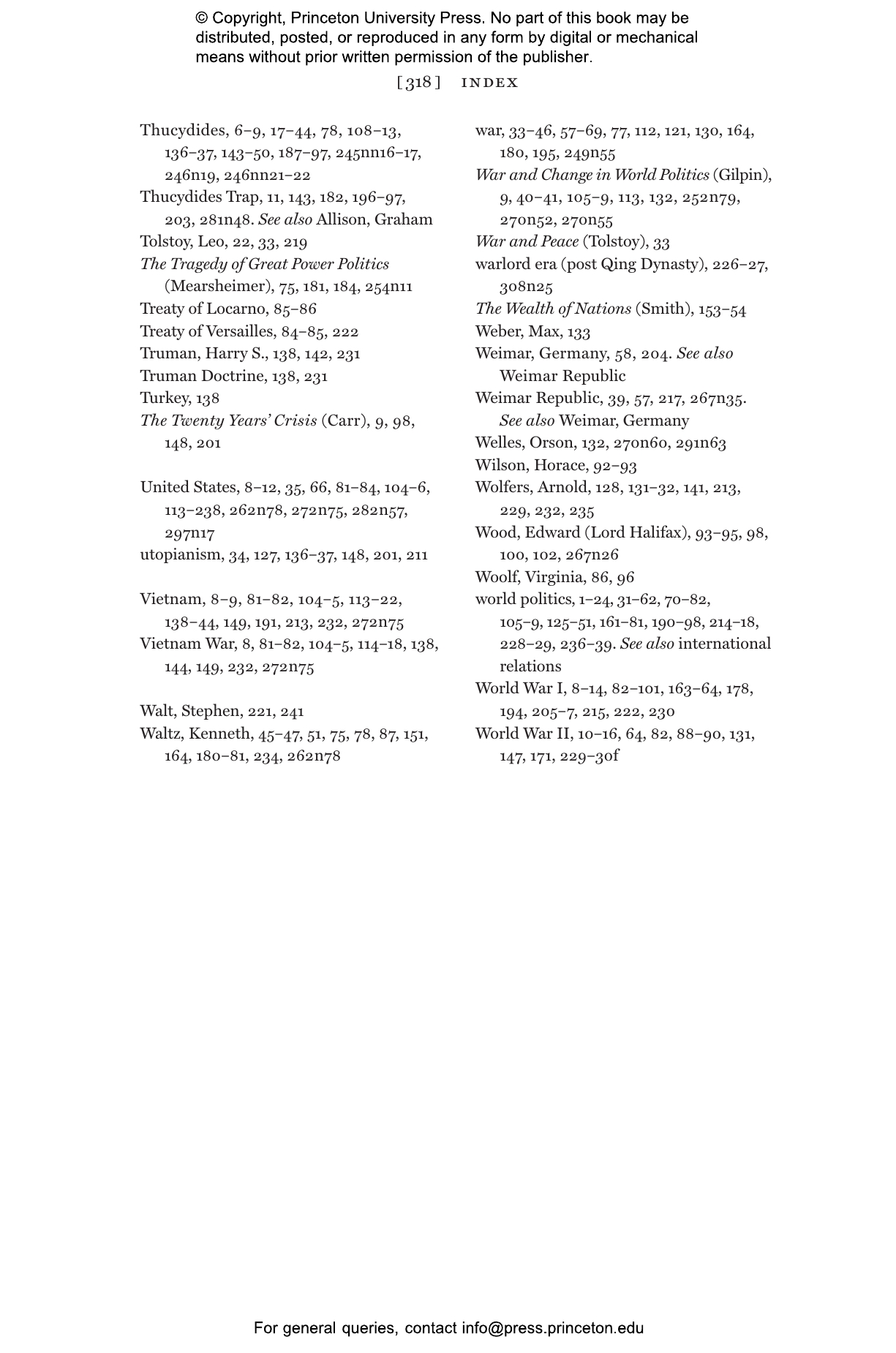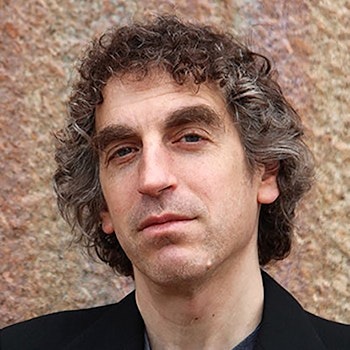An Unwritten Future offers a fresh reassessment of classical realism, an enduring approach to understanding crucial events in the international political arena. Jonathan Kirshner identifies the fundamental flaws of classical realism’s would-be successors and shows how this older, more nuanced and sophisticated method for studying world politics better explains the formative events of the past. Kirshner also reveals how this approach is ideally equipped to comprehend the vital questions of the present—such as the implications of China’s rise, the ways that social and economic change alter the balance of power and the nature of international conflict, and the consequences of the end of the US-led postwar order for the future of world politics.
Laying out realism’s core principles, Kirshner discusses the contributions of the perspective’s key thinkers, including Thucydides, Hans Morgenthau, and Raymond Aron, among others. He illustrates how a classical realist approach gives new insights into major upheavals of the twentieth century, such as Britain’s appeasement of Nazi Germany and America’s ruinous involvement in Vietnam. Kirshner also addresses realism’s limits and explores contemporary issues, including the ascent of great power challengers, the political implications of globalization, and the diffusion of power in modern world politics.
A reexamination of the realist tradition, with a renewed emphasis on the crucial roles played by uncertainty, contingency, and contestation, An Unwritten Future demonstrates how a once-popular school of thought provides invaluable insights into pressing real-world problems.
Awards and Recognition
- Honorable Mention for the Jervis Schroeder Prize, American Political Science Association International History & Politics Section
"With chapters on the rise of China, how to meld political economy questions into classical realist theories, and even exploring the potential weaknesses and shortfalls of classical realism, An Unwritten Future thoughtfully assesses the question of what it would mean in practice to reinsert classical realist perspectives into ongoing policy debates."—Emma Ashford, Foreign Affairs
"An enlightening reevaluation of an enduring theory that might continue to yield important insights about world politics today."—Choice
"Erudite and contentious. It is the kind of work that could only be written by a senior scholar building upon and summing up a long, distinguished career’s work in the field. . . . Its views and astonishing breadth of knowledge are on display not only in its wide-ranging historical and exegetical text but also in its extensive footnotes with their numerous analytic observations. . . . all will be dazzled by the range of the learned discussion."—Arthur Stein, Perspectives on Politics
"Kirshner's commanding plea for the resurgence of classical realism could not be more timely."—Political Science Quarterly
"Kirshner's timely, insightful, and thought-provoking book proposes a much-needed renewal of classical realism. This important contribution highlights the need for policy-makers and scholars to appreciate the theory's insights more fully."—Charlotte Hulme, International Affairs
"An important new book. . . . Kirshner aims to rehabilitate classical realism in International Relations."—Sumantra Maitra, Law & Liberty
"A compelling case for reviving classical realism as a guide to understanding contemporary problems."—Joshua Rovner, Englesberg Ideas
"Kirshner reclaims the timeless value that Classical Realism offers for the study of international relations."—Christoph Rohde, Zeitschrift fuer Aussen & Sicherheitspolitik
"In this sharply written, well-researched, and persuasive book, Jonathan Kirshner gleefully eviscerates some of the most prominent contributions to international relations theory of recent decades."—Robert L. Stone, Naval War College Review
"Kirshner is uniquely situated to make a case for classical realism’s continued relevance. His work has long crossed theoretical and disciplinary boundaries, and An Unwritten Future engages both international relations and economic theories to make the case that the field has been unduly obsessed with parsimony and determinist economic models."—Stacie Goddard, H-Diplo
"Kirshner presents a compelling depiction of classical realism. . . . [which] is broader and richer."—Mariya Grinberg, H-Diplo
"Kirshner’s account of the theoretical origins and evolution of classical realism is as good as theory-writing gets. Those who have read the classics can profit from the review; those who have not can profit even more. It is lucid, comprehensive, and sprightly."—Barry Posen, H-Diplo
"A brilliant and original study of one of the most important debates in the study of international relations."—Gideon Rachman, chief foreign affairs columnist, Financial Times
“I love this book—even the parts I don’t agree with. Combining classical realism, constructivism, normative theorizing, and a deep reading of history, economics, and war, Jonathan Kirshner offers a serious retelling of the story of Europe and the United States during the twentieth century—and a helpful, if sobering, guide to managing in the twenty-first.”—Deborah Avant, University of Denver
“In this brilliant tour de force, Jonathan Kirshner deploys all his many talents to mount a robust and convincing defense of classical realism, breathing life back into a tradition that has for too long been dominated by those who would reduce the study of living nations to ‘units of analysis’ and history to a series of ‘data points.’ A clarion call to those trying to make sense of the uncertain and open-ended times through which we are all now living.”—Michael Cox, professor emeritus of international relations and founding director of LSE IDEAS, London School of Economics
“An Unwritten Future is a landmark contribution to understanding the foundations of international relations theory—and the most sustained defense yet of the classical realist point of view. Grounded in a deep appreciation of Thucydides’s Peloponnesian War, Jonathan Kirshner’s book offers important insights into international relations theories and a highly critical account of both their significance and limitations.”—Michael Doyle, Columbia University
“Jonathan Kirshner has written a careful, honest, and effective critique of structural realist and rationalist theorizing about international relations, clearing space for a sophisticated classical realist contribution to IR theory.”—Alastair Iain Johnston, Harvard University
